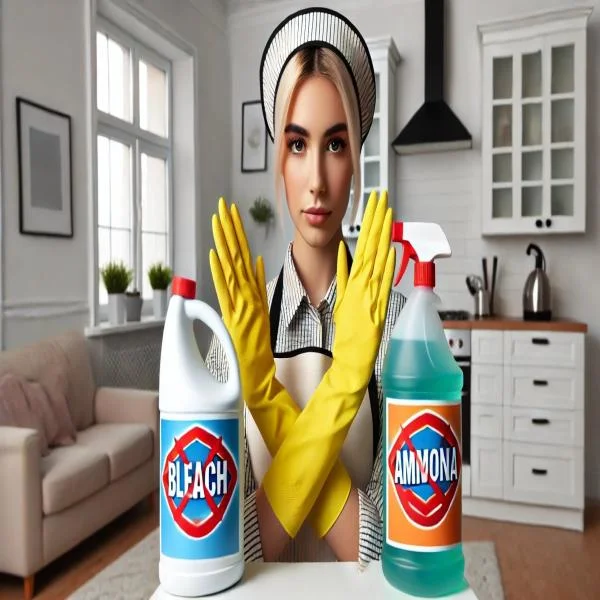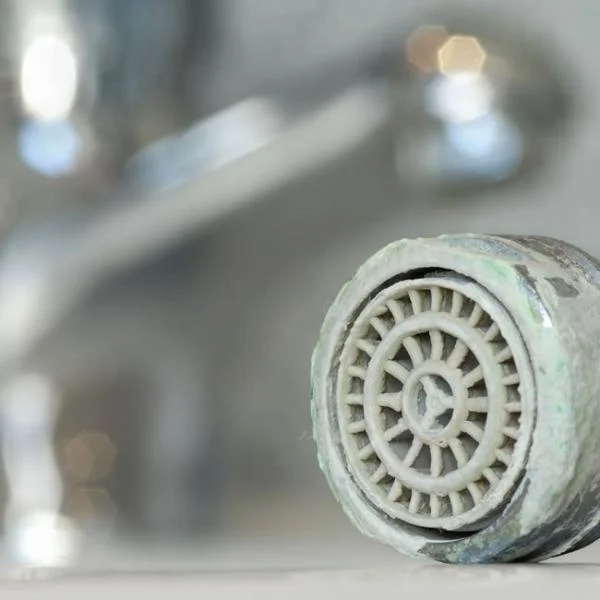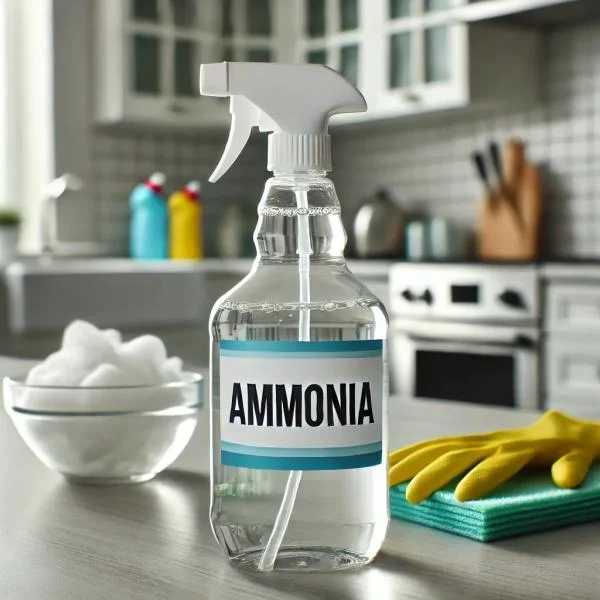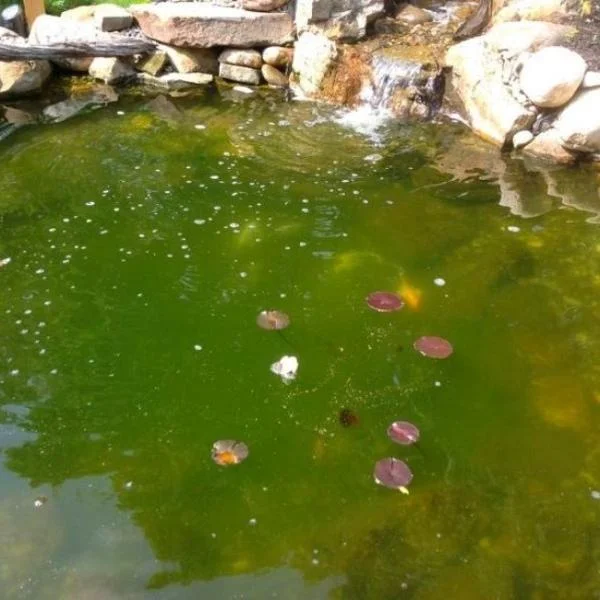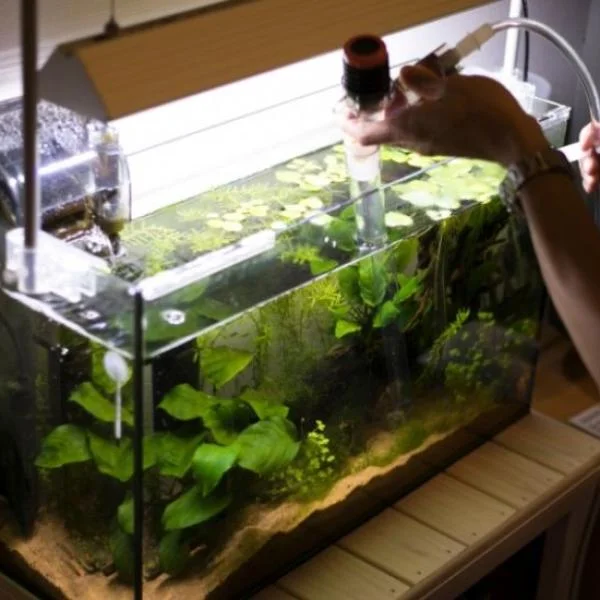
Vinegar and ammonia are two powerful and popular household cleaners used for a variety of tasks. Both offer effective cleaning capabilities, yet they each have unique properties, strengths, and limitations. While vinegar is an acidic solution known for its natural cleaning power, ammonia is a strong alkaline cleaner known for its effectiveness in breaking down grime and grease. In this article, we’ll explore the differences between vinegar and ammonia, how to use them safely, and why combining these two cleaners is not recommended.
Why Vinegar and Ammonia Are Popular Cleaners
Households across the world rely on vinegar and ammonia because they’re affordable, effective, and easy to find. Here’s a look at why each cleaner is so widely used:
- Vinegar is a natural, multi-purpose cleaner that’s especially effective for removing mineral deposits, soap scum, and light mold. It’s also non-toxic, making it safe for families and pets.
- Ammonia is a powerful cleaner known for cutting through grease and grime, particularly on glass, windows, and hard-to-clean surfaces. It’s especially helpful for heavy-duty cleaning tasks.
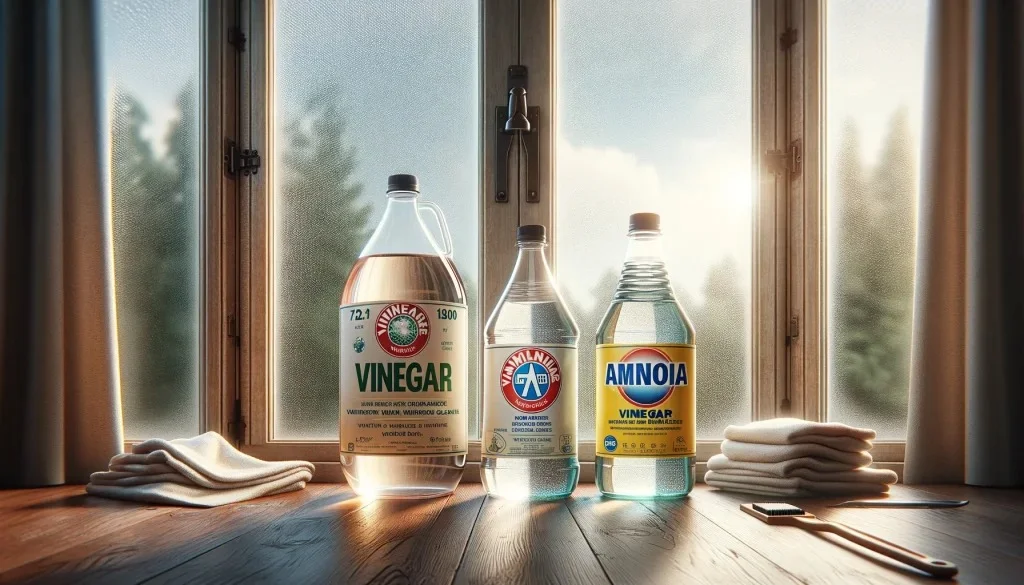
Both cleaners serve as great alternatives to commercial cleaners that contain harsh chemicals, providing a more natural and economical option for many households.
Differences Between Vinegar and Ammonia
Vinegar | Ammonia | |
Chemical Composition | Made from acetic acid and water, vinegar is acidic with a pH of 2.5-3. Its mild acidity is effective at breaking down alkaline stains, such as soap scum while being safe for household use. | An alkaline compound with a pH of 11-12, ammonia is typically diluted with water for household applications. Its alkalinity makes it ideal for dissolving greasy, fatty stains, especially in the kitchen. |
Best Uses for Each Cleaner | Vinegar is effective for descaling appliances, cleaning glass, removing soap scum, and naturally disinfecting surfaces. | Ammonia works well for degreasing surfaces, cleaning windows, removing fingerprints, and providing a streak-free shine on various surfaces. |
Effectiveness on Bacteria | Vinegar has mild antibacterial properties, making it suitable for light disinfection, though it may not kill all pathogens as effectively as stronger disinfectants like bleach. | Ammonia primarily acts as a degreaser and does not have antibacterial properties, making it less suitable for disinfection tasks. |
When to Use Vinegar vs. Ammonia
Choosing the right cleaner depends on the task at hand:
- Use Vinegar for cleaning mineral deposits, making mirrors shine, and removing mildew from bathroom surfaces.
- Use Ammonia for heavy grease stains, cleaning cooktops, and shining windows.
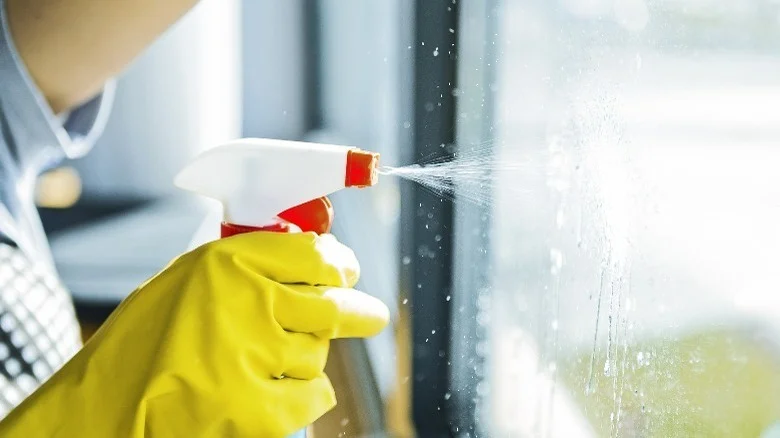
These cleaners should be applied to separate tasks to ensure safety and efficiency in your cleaning routine.
Why You Should Never Mix Vinegar and Ammonia
While vinegar and ammonia are both highly effective, combining them is not safe. Mixing an acid (vinegar) with a base (ammonia) creates neutralization, which not only reduces their effectiveness but can also produce irritating fumes that are harmful to your respiratory system. Instead of mixing, use these products on separate cleaning tasks or rinse surfaces thoroughly before switching products.
Safe and Effective Cleaning Tips with Vinegar
- Deodorizing and Freshening
Use vinegar to neutralize odors in rooms, refrigerators, and pet areas. Its natural acidity helps to combat smells without leaving harsh chemical residues.
- Glass and Mirror Cleaning
Vinegar is especially effective for windows and mirrors. Mix one part vinegar with one part water in a spray bottle, spray onto the glass, and wipe with a microfiber cloth for a streak-free finish.
- Lime Scale and Hard Water Stains
Apply vinegar to shower heads, faucets, and tiles to dissolve mineral deposits and soap scum. Let it sit for 10-15 minutes before scrubbing and rinsing.
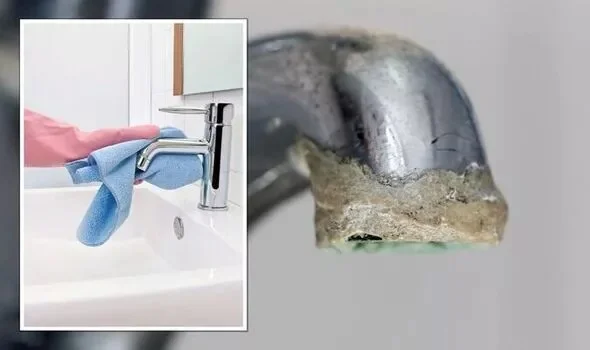
Best Uses for Ammonia in Household Cleaning
Cutting Through Grease
- Ammonia works wonders in the kitchen by breaking down grease. Mix a few tablespoons of ammonia with water to clean stovetops, ovens, and other grease-laden surfaces.
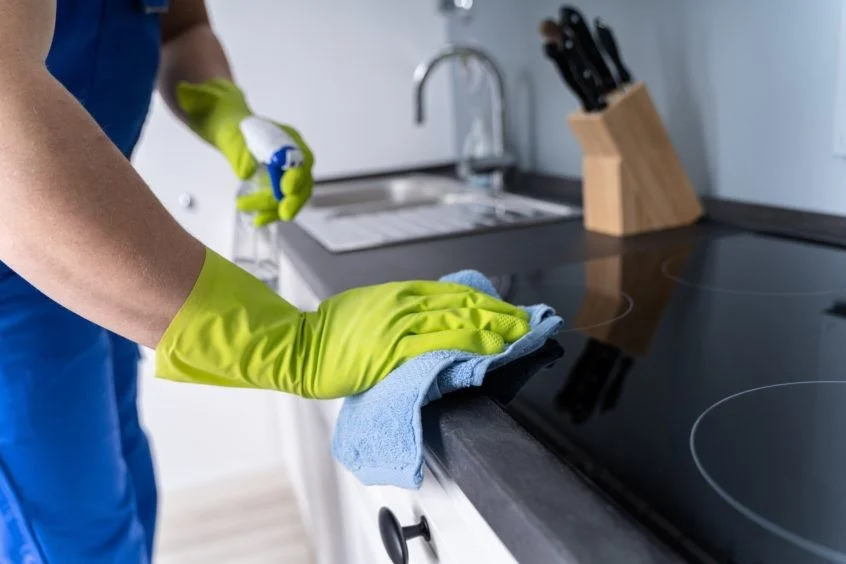
Shining Windows and Glass
- Ammonia is also great for cleaning glass surfaces. It evaporates quickly, leaving windows and mirrors streak-free. Just mix with water and avoid using it on tinted windows, as it can damage the tint.
Cleaning Grout and Tile
- Ammonia is excellent for grout and tile cleaning, helping to lift grime and mildew from these hard-to-clean areas. Apply it with a brush, scrub, and rinse thoroughly.
Precautions When Using Vinegar and Ammonia
Ventilation
When cleaning with ammonia, always ensure proper ventilation. Ammonia fumes can be strong and irritating, especially in enclosed spaces.
Avoid Mixing
As mentioned, vinegar and ammonia should never be mixed due to neutralization and potential fume production. Stick to one cleaner per task to maximize safety and effectiveness.
Protective Gear
Wear gloves and avoid inhaling fumes directly. Eye protection is also a good idea, especially when using ammonia.
Keep Away from Children and Pets
Store both vinegar and ammonia in safe, labeled containers, out of reach from children and pets to prevent accidental ingestion or exposure.
Using Vinegar and Ammonia Safely Around Your Home
When used properly, vinegar and ammonia are highly effective for maintaining a clean home. To maximize their effectiveness without risk:
- Pick the Right Cleaner for the Job: For windows and streak-free shine, go for ammonia. For deodorizing and disinfecting, vinegar is the better choice.
- Space Out Uses: If using both cleaners in the same room, wait several hours or rinse thoroughly to avoid unintentional mixing.
- Rotate Between the Two: Instead of trying to mix cleaners, use them on alternate cleaning days or reserve each cleaner for specific tasks to avoid cross-contamination.
Eco-Friendly Alternatives to Mixing Cleaners
For those looking for an all-purpose cleaner without risk, consider these alternatives:
- Baking Soda and Water: Baking soda is a gentle, non-toxic cleaner that’s perfect for scrubbing surfaces.
- Hydrogen Peroxide: For disinfection, hydrogen peroxide is a safe and effective alternative to vinegar and bleach.
- Eco-Friendly Commercial Cleaners: Many eco-friendly brands offer safe, multi-purpose cleaners that combine natural ingredients for effective cleaning.
Conclusion
Vinegar and ammonia both offer powerful cleaning benefits that make them household staples. However, they should never be mixed, as combining them reduces their effectiveness and produces irritating fumes. By understanding the strengths and safe applications of each cleaner, you can maintain a clean home without compromising safety. Stick to the cleaner best suited for the task at hand, take necessary precautions, and explore natural alternatives for a healthier cleaning routine.
Related Articles
Understanding The Dangers of Mixing Bleach and Ammonia
When it comes to household cleaning, bleach and ammonia are two powerful agents often used for ...
What Is Limescale and Why Should Care About It
Limescale is a common problem that affects many households, especially in areas with hard water. ...
Role of Ammonia in Everyday Cleaning and Industrial Applications
Ammonia is a versatile and widely used chemical compound with a significant role in both everyday ...
Key Factors for Healthy Pond Water Quality
Pond water quality is crucial for maintaining a healthy aquatic ecosystem that supports fish, ...
How to Change Pond Water to Keep Your Pond Pristine
Maintaining a well-balanced ecosystem in your pond is all about keeping water quality in check. One ...
The Importance of Proper Water Changes for Your Aquarium
In this comprehensive guide, we'll explore the importance of water changes , how to determine the ...

